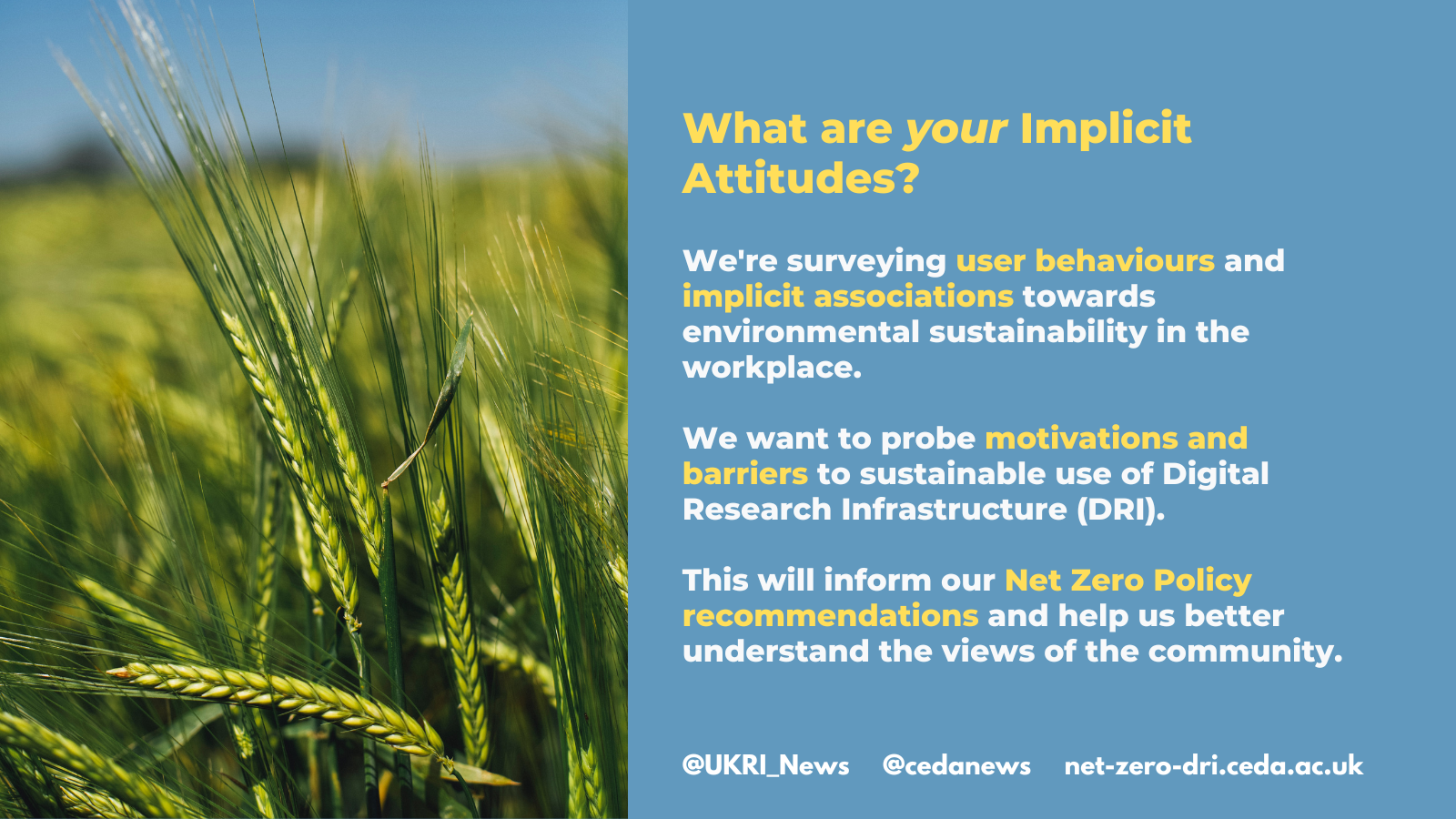User Behaviour Survey
Edge Hill University conducted research using outreach to the broad community of users of digital research infrastructure (DRI). The aim of this research was to investigate the motivating/enabling factors and barriers to sustainable behaviour, as well as willingness to change, when it comes to engaging with Digital Research Infrastructure.
This study focused on four specific categories: general work-related behaviour, digital infrastructure usage, research, data storage and code writing. Implicit attitudes of participants to low carbon choices were also measured using a carbon Implicit Association Test (IAT).
284 participants took part in this study recruited via university newsletters, emails, and through social media.
The information gathered by the survey was pulled into 16 key findings and 20 recommendations, which helped the project to understand how DRI is used and enabled it to recommend appropriately targeted policy interventions.
Key findings included:
- There were high levels of support from respondents to reduce their work-related environmental impact, such as in connection with commuting and conferences. However, only 16% said that they always try to reduce the amount of energy their research requires. This was attributed to not knowing how to do so.
- People rarely consider the link between storing data and its impact, and are simply not aware of the environmental impact of storing data; under 20% said that they ‘always’ look for efficiencies (to use less energy) when writing code.
- Most respondents had never considered using specialised computing facilities such as JASMIN and ARCHER2 for environmental data studies, this rose to 100% for student and apprentice respondents.
- Over half of the sample reported difficulty assessing the carbon footprint of their everyday activities and 80% reported that they find it difficult to assess the carbon footprint of their work.
The full User Behaviour Survey Report can be found here: DOI:10.5281/zenodo.7827919
Institutions involved: Edge Hill University
